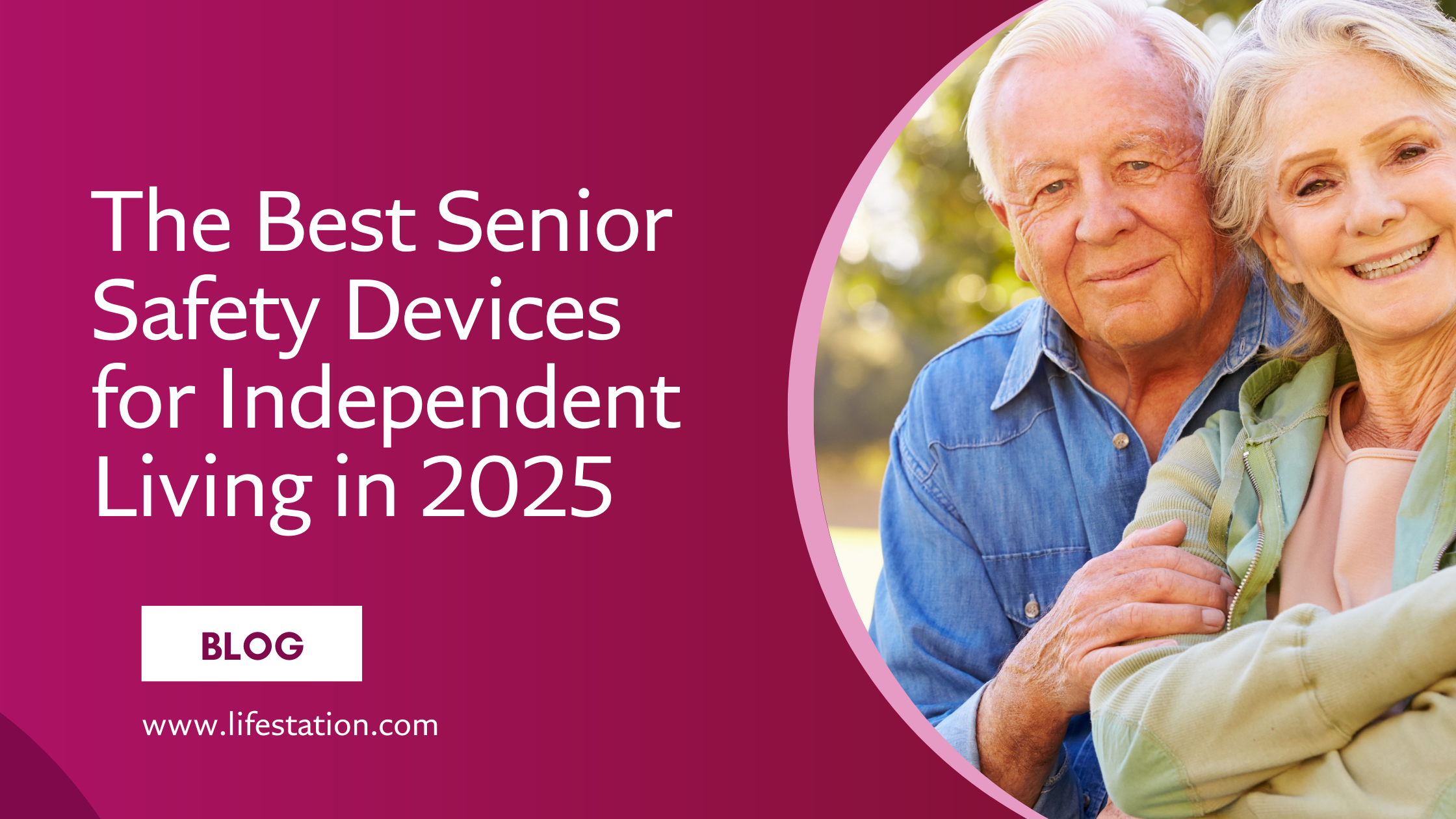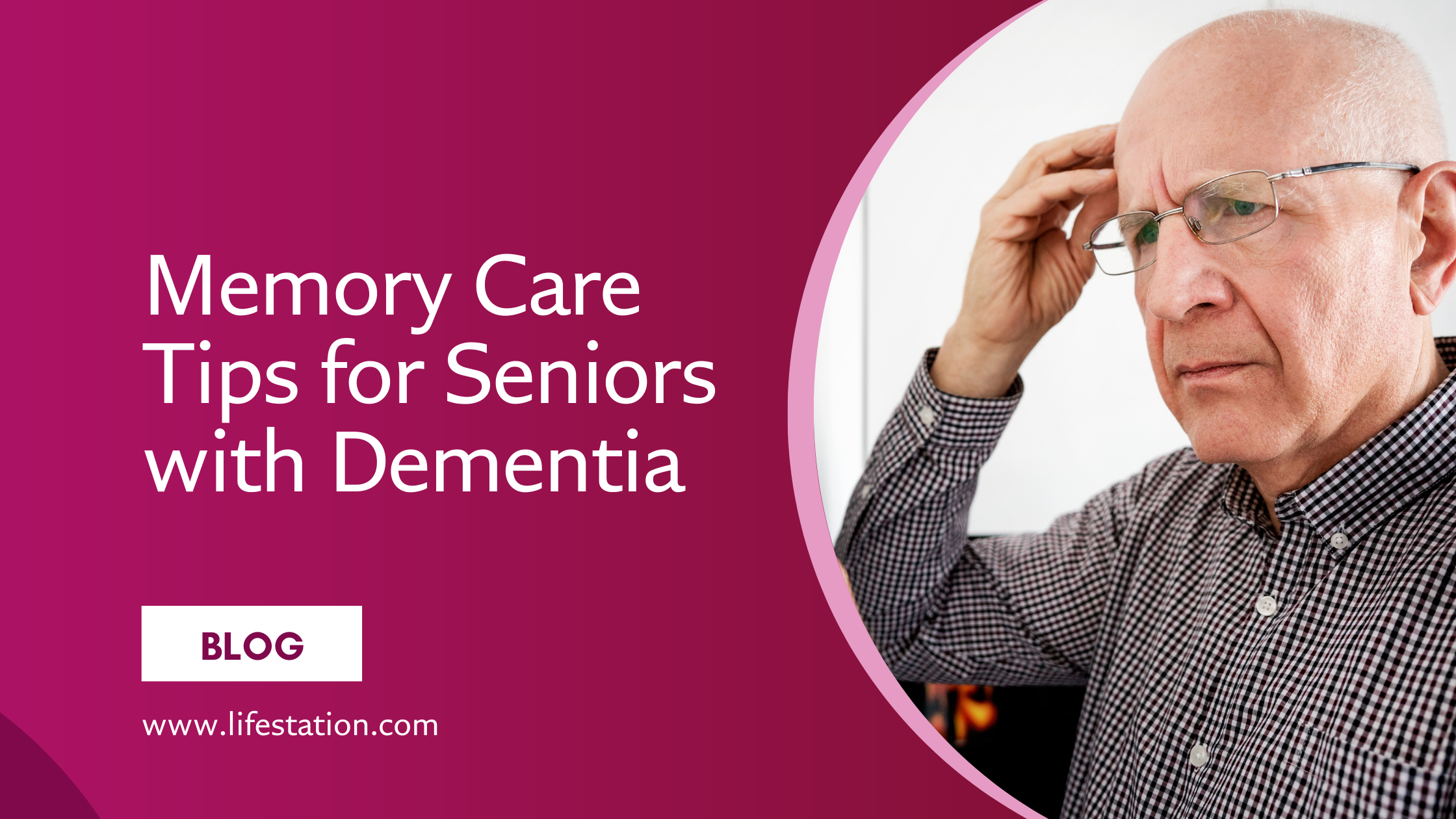Peace of Mind & Independence is One Call Away
(888) 493-1475 - Click to Call get a FREE MONTH of service.
Caregiving is a role that often exists in the background, quiet and unseen. It’s a steady rhythm of sacrifices and small victories, where every action—no matter how ordinary—carries extraordinary meaning. The hand held during a doctor’s appointment, the calm reassurance offered after a restless night, the careful planning behind a seemingly effortless day. These moments, while profound, can also be heavy.
Caregivers give so much of themselves, often without asking for recognition or reprieve. Yet, the weight they carry is real, and the challenges they face are deeply personal. To share tools, ideas, and insights is not just about making things easier—it’s about honoring this necessary role and making sure no caregiver feels they have to face it alone.
What Are Senior Care Needs?
Every senior’s situation is different, so taking the time to assess their needs is an important step in creating a supportive and effective caregiving plan. Providing care for an older adult starts with understanding their specific health problems, medical needs, and personal preferences.
- Assess Health and Medical Needs: Consult with the senior’s health care professional to identify their medical conditions, prescription medicines, and treatment plans. This can help you anticipate challenges and provide the right care.
- Involve Your Loved One: Talk to your family member about the type of support they need and how they’d like to receive it. This not only respects their independence but also strengthens your relationship.
- Create a Care Plan: Chart their daily routine, medical appointments, and personal care needs. A well-organized care plan can reduce stress and help make sure that important things don’t get overlooked.
- Support Independence: Encourage seniors to participate in their daily tasks where possible. Small actions, like preparing healthy meals together or helping with light physical activity, can lead to a sense of accomplishment.
- Seek Professional Input: Collaborate with health care providers to adapt the care plan as your loved one’s needs change over time.
Understanding a loved one’s needs is the foundation of successful caregiving. By taking these steps, caregivers can ensure their loved ones receive thoughtful and effective support.
How Can You Create a Safe Living Environment?
A safe home environment is necessary for older adults, as it reduces the risk of injuries and helps them maintain their independence. By addressing potential hazards and making thoughtful adjustments, you can create a space where your loved one feels comfortable and secure.
How Can You Prevent Falls at Home?
- Remove tripping hazards like loose rugs, clutter, or uneven flooring.
- Improve lighting in hallways, stairs, and rooms to confirm clear visibility, especially at night.
- Install handrails and grab bars in high-risk areas like staircases and bathrooms to support mobility.
What Safety Accessories Should You Consider?
- Place non-slip mats in the bathroom and kitchen to reduce the risk of slipping on wet surfaces.
- Use raised toilet seats or shower chairs for added safety during daily tasks.
- Keep emergency phone numbers visible and easily accessible in case of an urgent situation.
Why Invest in a Medical Alert System?
Medical alert systems are an invaluable resource for both caregivers and seniors. In case of an emergency, these devices provide instant access to help, offering peace of mind and potentially saving lives.
Request a LifeStation medical brochure.
How Can You Make the Home More Accessible?
- Rearrange furniture to create clear pathways for easy navigation, especially if mobility aids like walkers are used.
- Adjust storage areas so frequently used items are within reach to minimize the need for climbing or bending.
Creating a safe home environment is an ongoing process. Regularly assess your loved one’s living space to make sure it continues to meet their needs as they age.
How Can Caregivers Prioritize Their Well-Being?
Taking care of a loved one is a demanding job, and many caregivers neglect their own health in the process. Prioritizing self-care is not just important for you, it helps you can provide the best support for your loved one.
Why Is It Important to Manage Stress?
Chronic stress can lead to burnout, affecting both your physical and emotional health. Make time for activities that help you relax, even if it’s just 10 minutes a day to meditate, read, or take a short walk. Remember, small steps can lead to big improvements in your overall well-being.
How Can Caregivers Stay Physically Healthy?
- Focus on eating healthy meals and snacks that provide sustained energy throughout the day.
- Incorporate light physical activity, like daily walks, to boost your mood and maintain strength.
- Make time for your own medical appointments and prioritize enough sleep to support your body’s needs.
What Support Resources Are Available?
- Join a support group, either in person or online, to connect with others who understand the challenges of caregiving.
- Look into local resources, such as adult care centers, that can provide temporary respite care.
- Don’t hesitate to reach out to friends or family members for help with daily tasks when needed.
When Should You Ask for Help?
It’s okay to acknowledge when you need assistance. Enlist a backup caregiver for times when you’re sick, overwhelmed, or simply need a break. Taking care of yourself is one of the most important things you can do to continue providing quality care for your loved one.
How Can You Support a Senior’s Independence?
Encouraging older adults to maintain their independence is important for their emotional well-being and self-esteem. With the right approach, you can empower them to stay active and involved in their daily lives.
Why Is Independence Important for Seniors?
Maintaining independence allows older people to feel a sense of control over their lives. It fosters confidence and reduces feelings of helplessness, which are common when dealing with aging or illness.
How Can You Support Daily Tasks?
- Help your loved one with personal care and daily tasks while allowing them to do as much as they’re comfortable with.
- Assist with medication management to guarantee prescription medicines are taken as prescribed.
- Use assistive devices like walkers or grabbers to make tasks safer and more manageable.
What Activities Can Promote Social Engagement?
- Encourage your loved one to spend time with friends, family, or community groups to stay connected.
- Support participation in hobbies or social events that they enjoy. Social support can improve mental health and reduce feelings of isolation.
How Can You Respect Their Privacy?
Providing care doesn’t mean taking over completely. Allow your loved one the space to make decisions and handle private matters on their own when possible. This shows respect for their autonomy and helps preserve their dignity.
Supporting independence doesn’t just benefit seniors, it strengthens the caregiver-senior relationship and helps improve their quality of life.
Empowering Caregivers and Seniors with Peace of Mind
Caring for a loved one is a journey filled with challenges, but with the right tools and support, it can also be incredibly rewarding. By understanding your loved one’s needs, creating a safe home environment, and prioritizing your own well-being, you can enhance quality of life for both of you.
At LifeStation, our mission is to empower seniors and their caregivers with safety, independence, and peace of mind. Our innovative medical alert systems help seniors live confidently and securely at home while giving caregivers the reassurance they need to manage their busy lives. With 24/7 emergency monitoring, advanced technology, and a team dedicated to protecting lives, LifeStation is here to support you every step of the way.
Take the first step today. Speak with a LifeStation care specialist to learn more about how our medical alert solutions can make a difference for you and your family. Call us at (844) 435-1139 to get started!
How Can Family Caregivers Balance Their Responsibilities Without Feeling Overwhelmed?
Family caregivers can manage stress by setting boundaries, delegating tasks, using respite care services, and consulting medical care resources to better balance caregiving with personal responsibilities.
What Are the Best Dietary Choices for Seniors with Heart Disease?
A healthy diet for seniors with heart disease includes heart-healthy fats (e.g., salmon, nuts), low-sodium meals, and fiber-rich foods like whole grains and vegetables. Family caregivers can work with medical care professionals to develop meal plans.
When Should Family Caregivers Consult a Medical Professional for Their Loved One?
Family caregivers should seek medical care if a loved one experiences sudden health changes (e.g., chest pain, dizziness) or if managing medications and heart disease symptoms becomes overwhelming.
How Can a Healthy Lifestyle Improve Caregiving Outcomes for Seniors with Heart Disease?
Encouraging a healthy diet, regular physical activity, and stress management can help family caregivers improve caregiving outcomes for seniors with heart disease, while also supporting their own health.
Get the Best in Medical Alert Services Now
Request Medical Alert Information
By clicking the Request Brochure button above, you are providing an electronic signature certifying that our company and our affiliates have your consent to contact you at the provided telephone number using an autodialer or prerecorded message in accordance with our Terms of Use. Please note that you are not required to purchase anything from the companies that may contact you. Healthcare providers and anyone interested in getting more information about working with LifeStation, please contact LifeStation business development. By entering an email address, you agree to receive emails periodically from LifeStation. You can unsubscribe from these emails at any time. LifeStation.com will never sell, trade, rent or give away your personal information without your permission. We value and respect your trust in us.

